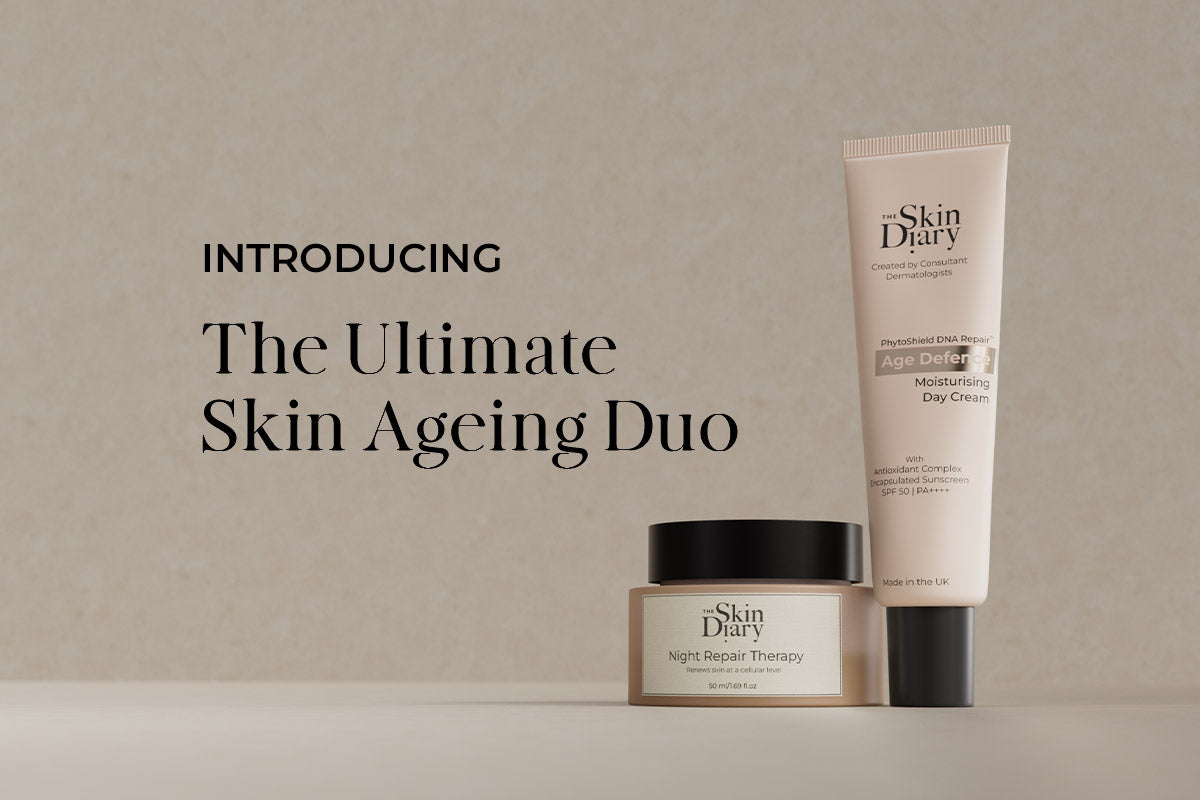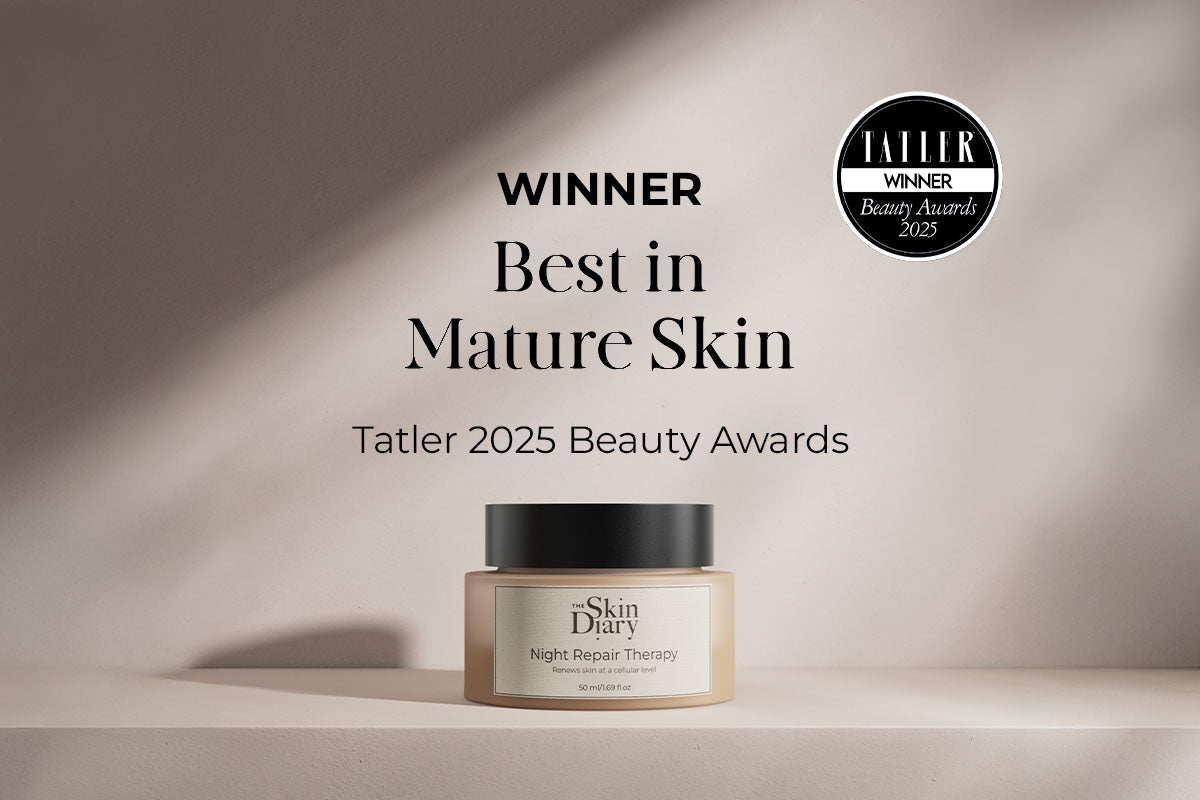Stress impacts our body in a number of ways, some of which you might’ve never considered before, including the skin. During acute or prolonged bouts of stress, you may find that your skin isn’t looking or feeling its usual self with concerns you thought you’d tackled making an appearance again. Although periods of stress in life are inevitable, it can help knowing how to best look after our skin during this time by understanding what’s happening. We’re looking into how stress can impact our skin and what we can do to support our skin.
Does stress impact our skin?
In short: yes, stress does impact the homeostasis of the skin. Psychological impacts of our skin is a relatively under researched field but is thought to have a well-known influence on certain inflammatory conditions [1].
“There is an emerging area of skin research called 'dermato-endocrinology', which explores the relationship between hormones and the skin. Currently, there are theories connecting cortisol (the stress hormone) acting directly e.g. to receptors on the pilosebaceous unit to induce acne formation, as well as indirectly via its effects on the immune system, to induce inflammation,” explains Dr. Du-Harpur.
Chronic physiological stress stimulates the autonomic nervous system, renin-angiotensin system and hypothalamic-pituitary-adrenal (HPA) axis. Prolonged stress (and activation of these) can result in immune dysfunction and increased production of reactive oxygen species (ROS) and DNA damage.
Although cortisol and stress are known to impact a number of skin diseases, there’s no firm link with skin ageing yet. However, there is very early evidence to suggest that those suffering from chronic stress may be vulnerable to cortisol-induced DNA methylation (essentially, losing its ability to repair as effectively), leading to remodelling of the extracellular matrix (ECM), which is essentially the building blocks of youthful skin [1]. When these are working correctly, it can lead to signs of ageing.
Can stress exacerbate existing skin concerns?
“Many skin conditions (including eczema, psoriasis, and acne) fall into a category called 'immune mediated inflammatory diseases' (IMIDs). As the name suggests, the immune system is dysregulated in these conditions; rather than helping ward off infections and prevent cancer, as they are designed to, cells in the immune system are misfiring and inflaming healthy tissues,” Dr. Du-Harpur says. “Stress contributes to the dysregulation of this process, and can therefore cause more inflammation and lead to the worsening of skin conditions.” The impacts of this may “underlie inflammatory skin diseases caused or aggravated by stress, e.g. acne, rosacea, atopic dermatitis and psoriasis.” [2]
How does stress impact signs of ageing?
“From a holistic perspective, stress and poor mental health is associated with negative health outcomes. Skin ageing occurs in the context of whole body (or organismal) ageing, and therefore is impacted as part of this,” Dr. Du-Harpur adds.
As part of this, we can also look at sleep, which is an important part of stress and the skin. Oxidative stress, increased by chronic sleep disturbances, may accelerate cutaneous senescence (the ageing of skin cells), which is associated with a reduction in hydration and elasticity of the skin. [3]

How to look after skin during bouts of stress?
Obviously, the first aspect you should look at is the cause of the stress and whether there are ways to reduce that stress. This can include addressing the root cause and introducing holistic stress management into your daily life.
You may want to switch your skincare routine up during these times, too. Now, if you’re going through a particularly stressful period, it’s likely you’re not going to want a 10-step routine. The good news is we’re going to recommend the opposite of that. This is where we like to employ the KISS approach: Keep It Simple, Silly.
“Don't cause additional skin inflammation by combining too many irritating products,” says Dr. Du-Harpur. “Use soothing skincare products that support the skin barrier like panthenol, niacinamide and glycerin,” she adds. A simple cleanser and moisturiser at night with the addition of sunscreen in the morning is enough.
“The aim of this is to minimise skin inflammation (important in the context of skin inflammageing) and reactivity, which may be the case if there is a lot of psychological stress going on,” Dr. Du-Harpur adds.
References:
[1] Lee CM, Watson REB, Kleyn CE. The impact of perceived stress on skin ageing. J Eur Acad Dermatol Venereol. 2020 Jan;34(1):54-58.
[2] Jafferany M, Huynh TV. Psychodermatology: Basics and Beyond. J Eur Acad Dermatol Venereol. 2022 Mar;36(3):391–399. doi:10.1111/jdv.17432.
[3] Kim JE, Kim YK, Kim BJ, Eun HC, Cho KH, Park KC. The stress hormone corticosterone alters skin structure and function in chronically stressed hairless mice. Exp Dermatol. 2022 Mar;31(3):412–418. doi:10.1111/exd.14440.





